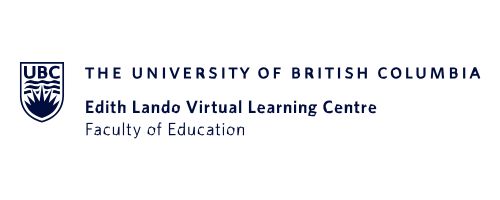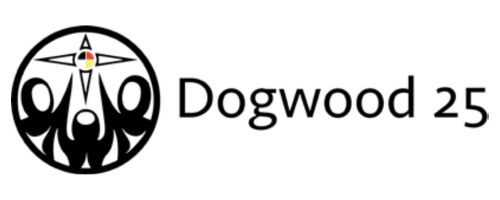
 Join us for the continuation of this webinar series with leading scholars and classroom educators. This season’s 3-part series focuses on assessment practices in math education guided by Indigenous pedagogies and perspectives such as Indigenous Storywork, teachings from the land, and culturally responsive mathematics education.
Join us for the continuation of this webinar series with leading scholars and classroom educators. This season’s 3-part series focuses on assessment practices in math education guided by Indigenous pedagogies and perspectives such as Indigenous Storywork, teachings from the land, and culturally responsive mathematics education.
Meet the Facilitators:
Dr. Cynthia Nicol

Dr. Cynthia Nicol is a Professor in the Faculty of Education and holds the David F. Robitaille Professorship in Mathematics and Science Education. She lived and taught on Haida Gwaii in B.C.’s Pacific Northwest coast before moving to Vancouver to pursue her doctoral studies. With teachers and communities, she explores new ways of making mathematics responsive to all learners by connecting Indigenous community, culture, and mathematics; emphasizing place and community-based education; re-imagining mathematics education through social and ecological justice issues; and challenging human-centric conceptions of place and STEM education. A current project involves working with teachers, community members, and Elders to explore the nature of culturally responsive pedagogies (CRP)-approaches to teaching that build upon students’ cultural and community experiences and histories.
Dr. Jo-ann Archibald

Dr. Jo-ann Archibald Q’um Q’um Xiiem, is a member of the Stó:lō First Nation and has kinship in St’at’imc First Nation in British Columbia, Canada. Over a 45-year educational career, Q’um Q’um Xiiem has served as a school teacher, curriculum developer, researcher, author, university leader and professor. She is Professor Emeritus in the Faculty of Education, University of British Columba (UBC) where she has held the leadership positions of Director of the First Nations House of Learning, Associate Dean for Indigenous Education, and Director of UBC’s Indigenous Teacher Education Program (NITEP). Q’um Q’um Xiiem’s scholarship relates to Indigenous knowledge systems, storywork/oral tradition, transformative education at all levels, Indigenous educational history, teacher and graduate education, and Indigenous methodologies.
Janice Novakowski

Janice Novakowski, a math consultant for the Richmond School District, is a non-Indigenous educator committed to learning about Indigenous worldviews, perspectives, knowledge, and culture. Janice sat on the Ministry’s mathematics curriculum development team and so has insight into ways to embed Indigenous ways of knowing into mathematics teaching and learning. She explains, “they were very intentional to not include Indigenous culture in the content learning standards . . . because culture is localized.” Therefore, any particular Indigenous cultural content may not be applicable to all Nations, communities, or geographical areas. “Instead, those Indigenous worldviews and perspectives and knowledge are embedded in the curricular competencies.”
Dr. Leyton Schnellert

Dr. Leyton Schnellert is an Associate Professor in UBC’s Department of Curriculum & Pedagogy and Eleanor Rix Professor of Rural Teacher Education. His scholarship attends to how teachers and teaching and learners and learning can mindfully embrace student diversity and inclusive education. Dr. Schnellert is the Pedagogy and Participation research cluster lead in UBC’s Institute for Community Engaged Research (ICER) and co-chair of BC’s Rural Education Advisory. His community-based collaborative work contributes a counterargument to top-down approaches that operate from deficit models, instead drawing from communities’ funds of knowledge to build participatory, place-conscious, and culturally responsive practices. Dr. Schnellert has been a middle and secondary school classroom teacher and a learning resource teacher K-12.
Joanne Yovanovich

Joanne Yovanovich was born and raised in the Ts’aahl Eagle Clan of Skidegate on Haida Gwaii, Her Haida name is Taanud Jaad. Joanne began as a full Day Kindergarten teacher and Vice Principal before becoming Principal of Sk’aadgaa Naay Elementary School. Currently she holds the position of Principal of Indigenous Education in Haida Gwaii School District. Joanne is committed to supporting all students on Haida Gwaii and believes that culturally responsive education is a key to student success.
Nichola Williams

Nichola lives in Nanaimo, BC, and works as a teacher for the Qualicum School District (SD69) in Parksville, BC on the Coast Salish territory, specifically the territory of the Snuneymuxw First Nations, and work in the shared territory of the Snaw’naw’as and Qualicum First Nations. Nichola currently teaches Grades 10, 11, and 12 mathematics. When she’s not working, you can find her walking her dog on local nature trails and beaches, volunteering as a leader with her daughters’ (aged 9 and 13) Scouts groups or helping coach at the softball field.







